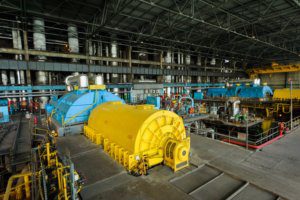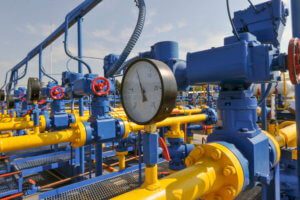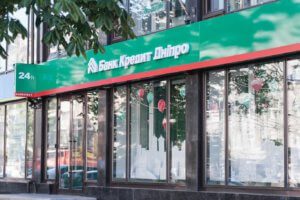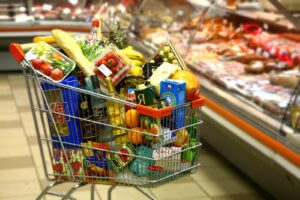
European Travel Insurance (ERV, Kyiv) in January-September 2018 increased the number of insured tourists by 32.5% compared to the same period in 2017, to 903,000 tourists.
According to the website of the insurer, the total amount of premiums collected during this period in 2018 increased by almost 41% compared to the same period in 2017 and amounted to UAH 169 million, while in the nine months of 2017 the company collected premiums in the amount of UAH 119 million.
The number of insurance events with tourists rose by 34% compared with 2017. In just nine months of 2018, the company registered 11,886 insurance claims. Of these, 85 cases occurred in Ukraine, for a total of UAH 66.258 million, while in 2017 for UAH 45.6 million.
More than half of claims about insurance events came to the company from Turkey and Egypt (61%). Statements about insurance events with tourists in Ukraine came mainly from Ivano-Frankivsk region, from Odesa, Mykolaiv, and Kherson.
The company retained the name European Travel Insurance and remained part of ETIG International Travel Insurance Group. The board and the whole team remained to work. The company continues cooperation with the assisting company of ERGO Group, Euro-Center Holding.
ERV Ukraine is still a specialized travel insurance company in Ukraine. The company hopes that in 2018, for the first time in 12 years of its work in the insurance market of Ukraine, it will insure more than one million tourists.

AIS group of companies, a large operator in the automotive and special vehicles market, in January-October of this year increased car sales by 27% compared with the same period last year, to 5,500 units, the press service of the company has said.
“AIS shows a positive trend, despite the fact that the automotive market is stagnating and began to show negative dynamics,” the report says.
The income of the group of companies for this period amounted to UAH 2.7 billion, obligatory payments to the national budget (VAT, duty, excise) amounted to UAH 0.9 billion.
According to the company, during this period sales of Geely cars increased by 51%, Citroen by 33%, Peugeot by 102%. In addition, sales of MAZ trucks showed an increase of 150%.
The business program AIS AutoTrade for used cars showed a sales growth of 57%. The company is also the leader in sales of the automobile brands Renault, Citroen, Ravon, and others in Ukraine.
Among the factors contributing to the sales growth are a number of ongoing programs. In particular, due to financial products, credit/leasing sales reached 30% with the average market indicators standing at 10%-15%.

DTEK Naftogaz LLC intends to increase natural gas production in 2019 by 10-12% (by 170-200 million cubic meters) compared to the expected production in 2018, to 1.8 billion cubic meters, manager on regulatory issues in the company Yulia Borzhemska has said during the XVI International Forum “Fuel and Energy Complex of Ukraine: Present and Future” in Kyiv.
According to the agency’s calculations, taking into account DTEK gas production in January-September 2018 in the amount of 1.242 billion cubic meters, the expected production in the current year will be 1.66 billion cubic meters.
“Next year, thanks to innovations, we will have a growth of 10-12%,” she said.
As reported, DTEK Naftogaz plans to achieve production of 2 billion cubic meters of natural gas until 2023.
DTEK Naftogaz is an operating company responsible for the oil and gas sector within DTEK energy holding. The assets portfolio of DTEK Naftogaz includes Naftogazvydobuvannia and Naftogazrozrobka, which carry out hydrocarbon exploration and production on three license areas in Poltava and Kharkiv regions.

Ukrainian enterprises in October 2018 imported gas at an average price of $323.44 (UAH 9,059.13) per 1,000 cubic meters, according to the website of the Ministry of Economic Development and Trade.
Thus, the price of gas imports in October was 6.3% higher than in September, when it was $304.36 (UAH 8,490.33) per 1,000 cubic meters.
The price in October 2018 is the highest since February 2015 when gas was imported to Ukraine at $328.60 per 1,000 cubic meters.
As reported, the price of gas imports per 1,000 cubic meters was $272.93 (UAH 7,784) in January 2018, $276.96 (UAH 7,430) in February 2018, $274.57 (UAH 7,154) in March 2018, $309.91 (UAH 8,100) in April 2018, $260.01 (UAH 6,806) in May 2018, $266.35 (UAH 6,960.18) in June, $288.82 (UAH 7,594) in July, $286.65 (UAH 7,910) in August, and $304.36 (UAH 8,490.33) in September, the Ministry of Economic Development and Trade said.
Earlier, Chief Commercial Officer of Naftogaz Ukrainy Yuriy Vitrenko said the average customs value of imported gas published by the Ministry of Economic Development and Trade is not representative.

Bank Credit Dnepr (Kyiv) is boosting its charter capital by UAH 1.173 billion or 43.1%, to UAH 3.893 billion via an additional issue of shares.
The bank reported in the information disclosure system of the National Commission for Securities and the Stock Market, the decision was made by the only shareholder in the bank on November 5.
The bank will privately place the additionally issued shares with a face value of UAH 1. The sole shareholder will buy the shares.
According to a press release from the Bank Credit Dnepr, referring to Board Chairperson Olena Malynska, this capitalization program is an integral part of the restructuring plan developed according to the results of the bank’s stress testing by the regulator and in accordance with its recommendations.
“The shareholder capitalizes the bank for the fourth time in three years, thus confirming confidence in the success of the post-crisis business strategy of the financial institution. Our further systematic work to improve the financial performance and asset quality, increase efficiency and the volume of new business, along with systemic support from the shareholder guarantee the implementation of the restructuring plan in a timely manner and provide an opportunity to start a sustainable profitable activity,” Malynska said.
Bank Credit Dnepr was founded in 1993. Its sole shareholder is Brancroft Enterprises Limited, which indirectly belongs to Victor Pinchuk.
The bank ranked 21st among 83 operating banks in the country as of July 1, 2018 in terms of total assets (UAH 9.08 billion), according to the NBU.

Chairman of the supervisory board of Louis Dreyfus Holding B.V. Margarita Louis-Dreyfus, who arrived in Kyiv at the head of the delegation of Louis Dreyfus Company, one of the largest foodstuff traders in the world, during a meeting with President of Ukraine Petro Poroshenko announced the plan to increase investment in the Ukrainian economy.
“You believe [in Ukraine], invest and promote Ukraine in the world,” Poroshenko said at a meeting with the company’s delegation.
The president noted the 20-year activity of the company in Ukraine and expressed hope that it will increase investment in the country.
Poroshenko also informed the delegation members about the progress of reforms in Ukraine aimed at improving the investment climate.
Margarita Louis-Dreyfus, in turn, said that the company plans to significantly increase investment in Ukraine in the coming years. She also noted that over the past four years there have been positive changes in Ukraine that the company feels in its work.
Louis Dreyfus Company is one of the largest food traders in the world with 10% of the world turnover. The company operates in 100 countries. Its core business is trade, agriculture and finance.